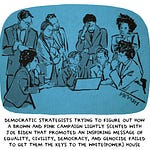Walter Lippmann in his 1920 book Liberty and the News warned that when journalists “arrogate to themselves the right to determine by their own consciences what shall be reported and for what purpose, democracy is unworkable.” Perhaps no other quote sums up the debacle known as Russiagate, the hundreds if not thousands of stories and news reporters that falsely painted the Trump administration as a tool of Russia and Vladimir Putin. The flawed reporting is an example of the steep erosion of journalistic ethics and standards and a lack of transparency and honesty on the part of the press. The Trump-Russia reporting has contributed to the steep decline of trust in the media and the bifurcation of the press into antagonistic tribes, neither of which are concerned with the truth but intent on catering to a particular demographic. The nation’s most reputable news organizations, as the investigative reporter Jeff Gerth points out, were guilty of egregious lapses. The New York Times, for example, in January 2018 ignored a publicly available document showing that the FBI’s lead investigator didn’t think, after ten months of inquiry into possible Trump-Russia ties, that there was much there. This omission, Gerth notes, disserved Times readers. The lie of omission is still a lie. And, to put it bluntly, in its eagerness to discredit Trump the lie of omission, combined with reliance on sources that peddled fictions designed to cater to Trump haters, as well as a failure to seek out those being attacked, dominated the liberal media landscape for four years of the Trump presidency. Hiding behind the wall of anonymous sources, frequently identified as “people (or person) familiar with” -- the Times used it over a thousand times in stories involving Trump and Russia between October 2016 and the end of his presidency – any rumor or smear was picked up in the news cycle with the source essentially unidentified and the information unverified. A routine, Gerth notes, soon took shape in the Trump-Russia saga. First, a federal agency like the CIA or FBI secretly briefs Congress. Then Democrats or Republicans selectively leak snippets that bolster their narrative. Finally, the story comes out, using vague attribution. The typical reader or viewer is clueless. This erosion has seen trust in the press plummet, with 86 percent of American saying they find press reports biased. The U.S. media has the lowest credibility – 26 percent – among forty-six nations, according to the Reuters Institute for the Study of Journalism. Stunningly, the decline has been accompanied by a lack of self-criticism and introspection by journalists and press organizations that month after month, year after year hyped a lie. To date, none of these press outlets, including The Washington Post, The New York Times, MSNBC, CNN, ABC, NBC, CBS and Mother Jones have provided a postmortem look at their coverage. Jeff Gerth, a Pulitzer-prize winning investigative reporter who worked at The New York Times from 1976 until 2005, spent the last two years writing an exhaustive look at the systemic failure of the press during the Trump-Russia story, authoring a four-part series of 24,000 words that has been published by The Columbia Journalism Review. Joining me to discuss his investigation is Jeff Gerth.
1×
Current time: 0:00 / Total time: -31:22













Share this post